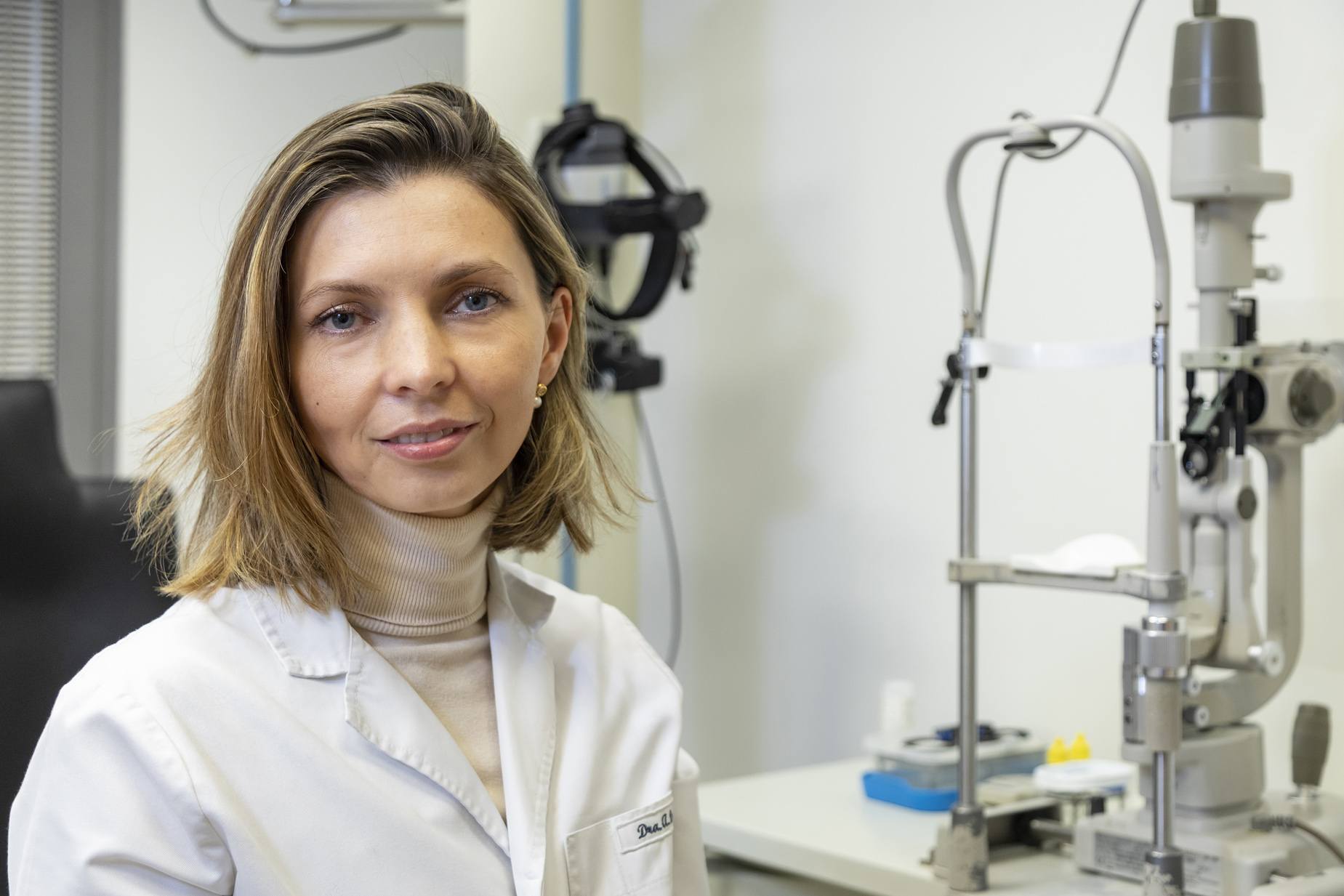
Last February Dr. Agnieszka Dyrda presented at the 25th Winter Congress of the European Society of Cataract and Refractive Surgeons (ESCRS) a paper prepared jointly with Dr. Pighin, Dr. Rey and Dr. Jürgens, from de Department of Retina, and Dr. Reyes, from the Department of Refractive Surgery. In it the doctors shared their experience in the use of the novel Carlevale lens in patients operated in ICR.
The Carlevale lens is a new lens with an innovative design that ensures anchorage to the scleral tissue without the need for stitches. This simplifies surgery, significantly reducing its duration and possible complications associated with sutures, such as extrusion or lens dropout due to suture breakage. Carlevale lenses are used in patients who do not have capsular support (physiological site for lens implantation) due to some ocular pathologies, trauma or surgical complications. They are suitable for aphakic eyes, without capsular bag.
The design of this lens allows implantation in the sulcus and anchorage to the wall of the globe (sclera) by using a harpoon with a self-locking system, which ensures a stable and durable fixation.
The ICR team’s work was selected by the organization as one of the best presentations at the 25th Winter Congress of the European Society of Cataract and Refractive Surgeons (ESCRS), which this year was held in virtual format.
Dr. Dyrda shared with the rest of the specialists at the Congress the excellent results of their study on Carlevale lenses. She explained: “Carlevale lenses have given us very good visual results, anatomical stability and a high safety profile. This technique should be considered as the first choice for sulcus fixation without the use of sutures in the absence of capsular support between posterior chamber lenses and transscleral fixation, especially since the Carlevale lens is specifically designed and approved for this purpose.”
Contact us or request an appointment with our medical team.